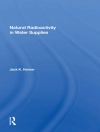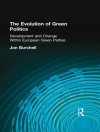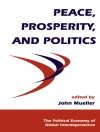As the distinction between domestic and international is increasingly blurred along with the line between internal and external borders, migrants—particularly people of color—have become emblematic of the hybrid threat both to national security and sovereignty and to safety and order inside the state. From building walls and fences, overcrowding detention facilities, and beefing up border policing and border controls, a new narrative has arrived that has migrants assume the risk for government-sponsored degradation, misery, and death. Crimmigrant Nations examines the parallel rise of anti-immigrant sentiment and right-wing populism in both the United States and Europe to offer an unprecedented look at this issue on an international level.
Beginning with the fears and concerns of immigration that predate the election of Trump, the Brexit vote, and the signing and implementation of the Schengen Agreement, Crimmigrant Nations critically analyzes nationalist state policies in countries that have criminalized migrants and categorized them as threats to national security. Highlighting a pressing and perplexing problem facing the Western world in 2020 and beyond, this collection of essays illustrates not only how anti-immigrant sentiments and nationalist discourse are on the rise in various Western liberal democracies, but also how these sentiments are being translated into punitive and cruel policies and practices that contribute to a merger of crime control and migration control with devastating effects for those falling under its reach. Mapping out how these measures are taken, the rationale behind these policies, and who is subjected to exclusion as a result of these measures, Crimmigrant Nations looks beyond the level of the local or the national to the relational dynamics between different actors on different levels and among different institutions.
Tabela de Conteúdo
Introduction : The “Problem” of Migration
Robert Koulish and Maartje van der Woude | 1
I. Border Criminologies
1 Insecurity Syndrome: The Challenges of Trump’s Carceral State
Tony Platt | 33
2 Migration, Populism, Racism: Between “Old” Italy
and “New” Europe
Dario Melossi | 50
3 The Promise of the Border: Immigration Control and Belonging
in Contemporary Britain
Ana Aliverti | 68
II. Crimmigration Under Trump
4 The Terrorism of Everyday Crime
Juliet P. Stumpf | 89
5 The Trumping of Neoliberal Penality? Trump’s Presidency and
the Rise of Nationalist Authoritarianism in the United States
Sappho Xenakis and Leonidas K. Cheliotis | 116
6 Trump v. Hawaii: Trumpeting Authoritarianism with Formalist
Analysis and Sovereign Norms
Robert Koulish | 134
7 A Path toward Nowhere: The Rise of Enforcement- Based
Immigration Policy
Doris Marie Provine | 157
8 Trump Doesn’t Tweet Dog Whistles, He Barks with the
Dogs: Crimmigration as a Racial Project through the Lens
of Trump’s Twitter
Rashawn Ray and Simone Durham | 179
9 Mirrors of Justice? Undocumented Immigrants in Courts
in the United States and Russia
Agnieszka Kubal and Alejandro Olayo- Méndez | 198
III. Shoring Up Fortress Europe
10 Euroskepticism, Nationalism, and the Securitization of Migration
in the Netherlands
Maartje van der Woude | 227
11 Sorting Out Welfare: Crimmigration Practices and Abnormal
Justice in Norway
Helene O. I. Gundhus | 249
12 The Fight against Terrorism in Belgium: Crimmigration Law
as a Counterterrorism Instrument?
Lana De Pelecijn and Steven De Ridder | 279
13 How Does Crimmigration Unfold in Poland?: Between
Securitization Introduced to Polish Migration Policy by Its
Europeanization and Polish Xenophobia
Witold Klaus | 298
14 Migration Control, Populism, and the Spectrum of
Exclusion in Turkey
Zeynep Kasli and Zeynep Yanasmayan | 315
List of Contributors | 337
Index | 341
Sobre o autor
Zeynep Yanasmayan is a Senior Research Fellow and Coordinator of the project “The Challenges of Migration, Integration and Exclusion.” She holds a Ph.D. in Social Sciences from KU Leuven, Belgium. Before joining the Max Planck Institute for Social Anthropology in 2017, she worked as a research fellow at various institutions, including Humboldt University in Berlin, European University Viadrina, and the Max Planck Institute for the Study of Religious and Ethnic Diversity in Göttingen.












